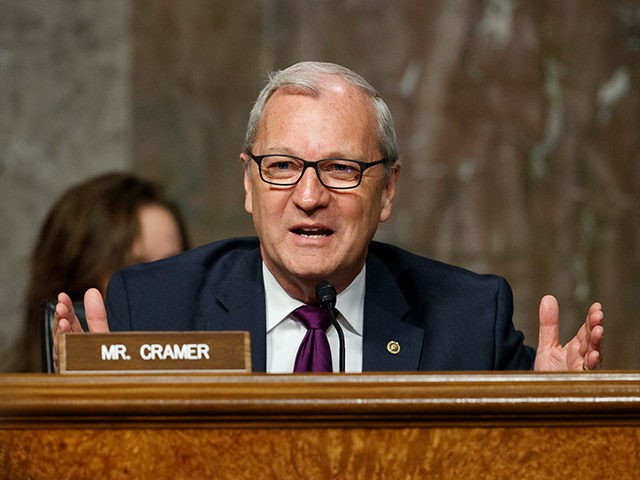Recently, as Democrats and the media obsessed over the impeachment circus, President Donald Trump continued delivering for the American people by signing an executive order to combat bureaucratic abuse and hold federal agencies accountable.
As the president said, “We are reforming the bureaucracy to make it lean, responsive, and accountable. And we are ensuring our laws are enforced fairly.” I applaud him for this important work and fulfilling his promise to deliver a better government which serves the American people, not itself.
Throughout my time in public service, I have seen unaccountable bureaucrats attempt to nullify elections by resisting the policies and priorities of elected leaders. As the president pointed out, federal agencies for decades have issued thousands of pages of so-called “guidance” documents: regulations written by unaccountable bureaucrats in the form of commentary on how rules should be interpreted. Bureaucrats interpret these documents as if they are law when, in reality, they have never received a vote or been scrutinized by the public. That is not how the Founders intended our government to be run. As federal departments and agencies begin to implement President Trump’s orders, I would like to highlight three examples that deserve action.
The first example is the U.S. Army Corps of Engineers’ (USACE) Water Supply Rule. Over 10 years ago- without noticing it to the public- the USACE issued a memo “to establish new policy” regarding easements to support water storage agreements. This is an important issue to North Dakotans and states across the nation, but this new commentary-turned-guidance transformed into a de-facto policy and an attack on states’ water rights. The Corps then proposed a rule solidifying this policy despite the outcry from stakeholders. Fortunately, after I led a bipartisan letter to the Administration, Assistant Secretary RD James and Army Secretary Ryan McCarthy placed a temporary hold on the rule to better integrate outside input. The guidance upended a system and resulted in a poorly constructed rule. Neither are law and both should be repealed.
Another example is an issue North Dakota landowners have experienced with Interior’s Fish and Wildlife Service (FWS). Both agencies have authored guidelines resulting in de-facto land grabs for property owners. Federal easements’ footprints continue to grow and thereby remove land from production. One particularly egregious case is the story of Mike Johansen, a farmer from Hope, North Dakota. After a heavy rainfall year, the land flooded, leaving him unable to harvest and seed the land for next season. He asked the FWS for help, but due to poor guidance and enforcement, the Service offered him nothing. In fact, after he dug a drain, the FWS cited him and drug him to court. The legal fees and fines caused by vague regulations written without clarity, oversight, or an appeals process forced Mike to quit farming, sell his equipment, and borrow money just to get the funds he needed to defend himself. I had the privilege of hosting Secretary Bernhardt so he could meet with Mike and North Dakota landowners to discuss ways to ensure something like this does not happen again.
On a similar note, USDA’s Natural Resources Conservation Services (NRCS) has continued to “refresh” soil information to determine wetland setbacks. Ironically, all of these updates have never led to a reduction in the federal footprint. They only seem to grow. This is not just bad policy, it is detrimental to the lives and property rights of many Americans. One of my first meetings as a Senator was with NRCS Chief Matt Lohr to discuss this issue, and I hope to hear from him soon about potential solutions.
Turning to the future, the final guidance that must be crafted correctly is how to enforce the upcoming Waters of the United States (WOTUS) rule. This has been an important issue for North Dakotans since the law was passed, which is why EPA Administrator Andrew Wheeler came to our state to hear from local leaders and officials on the effects of the disastrous 2015 WOTUS rule and what the replacement should look like. The new rule is a step in the right direction as it stays within the confines of the law. While I am optimistic about the new rule, once it is finalized, it will require guidance on its implementation. The EPA must take the president’s Executive Order to heart and write guidance that is in line with the underlying regulation. It ought not empower federal bureaucrats, which would only negate the good work EPA has done.
President Trump’s Executive Order requires agencies to “maintain on its website a single, searchable, indexed database that contains or links to all guidance documents in effect.” It gives Americans an open and fair regulatory process that imposes new obligations on the public only when consistent with applicable law and after an agency follows appropriate procedures. It reins in the ability of bureaucrats to unjustly and unlawfully impose themselves on people like Mike. President Trump’s Order was significant and deserves recognition. Now it’s time for the agencies to adopt the Order and the spirit in which it was written.
Kevin Cramer is a United States Senator from North Dakota who previously served in the House of Representatives. He serves on the Armed Services, Budget, Environment and Public Works, Veterans Affairs, and Banking, Housing and Urban Affairs Committees. Senator Cramer is the first Republican to hold this Senate seat in his life time.

COMMENTS
Please let us know if you're having issues with commenting.